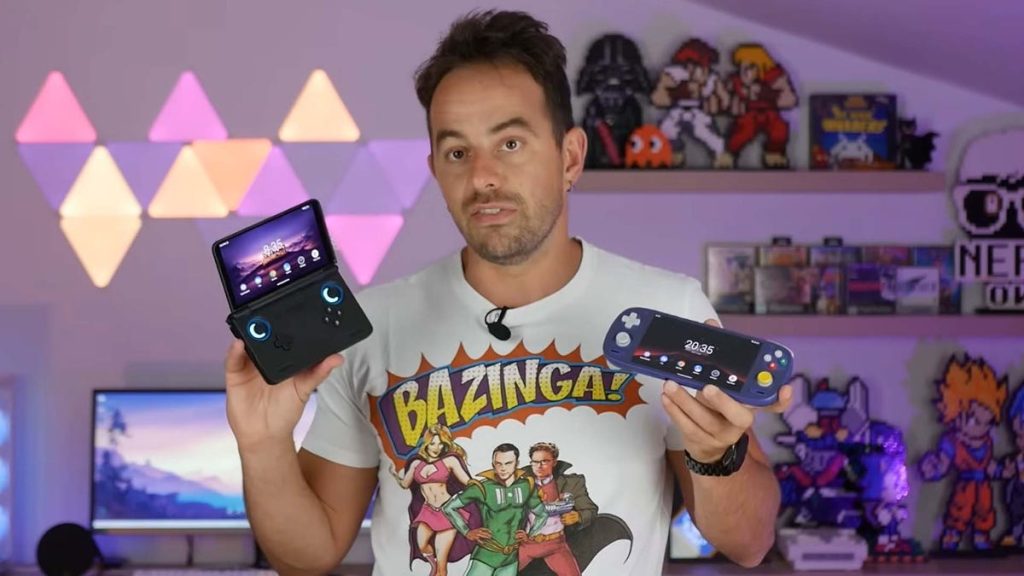In an alarming turn of events for the gaming and content creation community, Italian YouTuber Francesco Salicini, who is popularly known as Once Were Nerd, is facing potential legal consequences following his reviews of handheld gaming consoles that come pre-loaded with retro games. Salicini has raised concerns that he could be at risk of imprisonment, highlighting a precarious legal landscape surrounding video game emulation and copyright that could have far-reaching implications for content creators worldwide.
The Incident: A Legal Raid
The situation came to light after a video posted by Salicini on July 14, where he recounted how the Guardia di Finanza—Italy’s financial police—raided his home on April 15. During this raid, approximately 30 consoles, including popular retro emulator handhelds, were confiscated, alongside his personal phone, which was returned only months later. The Guardia di Finanza is tasked with tackling economic and financial crime and their involvement in this case raises questions about the legality of content discussed by Salicini.
As per his reports, the authorities have not disclosed specific charges against him, which is part of Italian law; details usually remain confidential until an investigation concludes. Following this period, a judge will determine whether the case will proceed to trial or be dismissed altogether. Salicini believes he is being targeted for his coverage of devices made by companies like Anbernic, which may include pre-loaded game ROMs, leading to accusations under Article 171ter of Italian Copyright Law.
The Legal Grey Area of Emulation
The crux of this case revolves around the murky waters of video game emulation and copyright law. Although emulation itself is generally considered legal, the legality of ROMs—a type of digital copy of video games—is far more ambiguous. According to Kotaku, the community views the distribution and use of ROMs as a legal grey area, especially when they are not acquired through legitimate means.
- Salicini’s situation points to the ongoing conflict between copyright holders and content creators who utilize their products for review and educational purposes.
- Emulation can serve as a crucial bridge for gaming history preservation, yet it often walks a fine line that can lead to legal action.
- Salicini faces the prospect of €15,000 fines and up to three years of imprisonment if found guilty, a measure of the seriousness with which Italian law approaches such violations.
The 1941 law under scrutiny in this case underscores the challenges that creators face in navigating outdated legal frameworks that do not adequately reflect today’s digital realities. As cited by Android Authority, Salicini has set up a GoFundMe campaign to help cover his legal expenses as he anticipates going to trial. He describes the ongoing precautionary actions taken against him, such as blocking his social media channels by financial police, as detrimental not only to his livelihood but also to his ability to communicate with his audience.
Community Reaction and Implications
The reaction from the gaming community has been largely sympathetic, with many voicing their concerns over the implications of Salicini’s situation for content creators around the globe. The fear is that if such actions by law enforcement against an individual creator become commonplace, they could deter others from producing content that engages with classic gaming and emulation.
This case may also serve as a wake-up call for policymakers to reconsider how copyright laws apply to modern digital content creation. The evolution of media and technology necessitates an evolution in the laws that govern them. The gaming community, which thrives on innovation, sharing, and remixed content, stands to be significantly impacted by rigid interpretations of outdated laws that do not account for the unique nature of digital content.
If Salicini is ultimately found guilty, it could set a precedent that would arm copyright holders with more leverage over content creators, potentially stifling the creativity and sharing culture that has developed within the gaming community. As this saga unfolds, it will be crucial for artists, developers, and content creators alike to advocate for a fair and equitable approach to copyright that promotes creativity rather than stifling it.
The legality of emulation and the sharing of game content may be open for debate, but what’s clear is that the implications of Salicini’s situation, whether perceived or real, resonate far beyond his individual case. The results of these legal proceedings could shape the future landscape of gaming content creation and copyright in a digital age.

